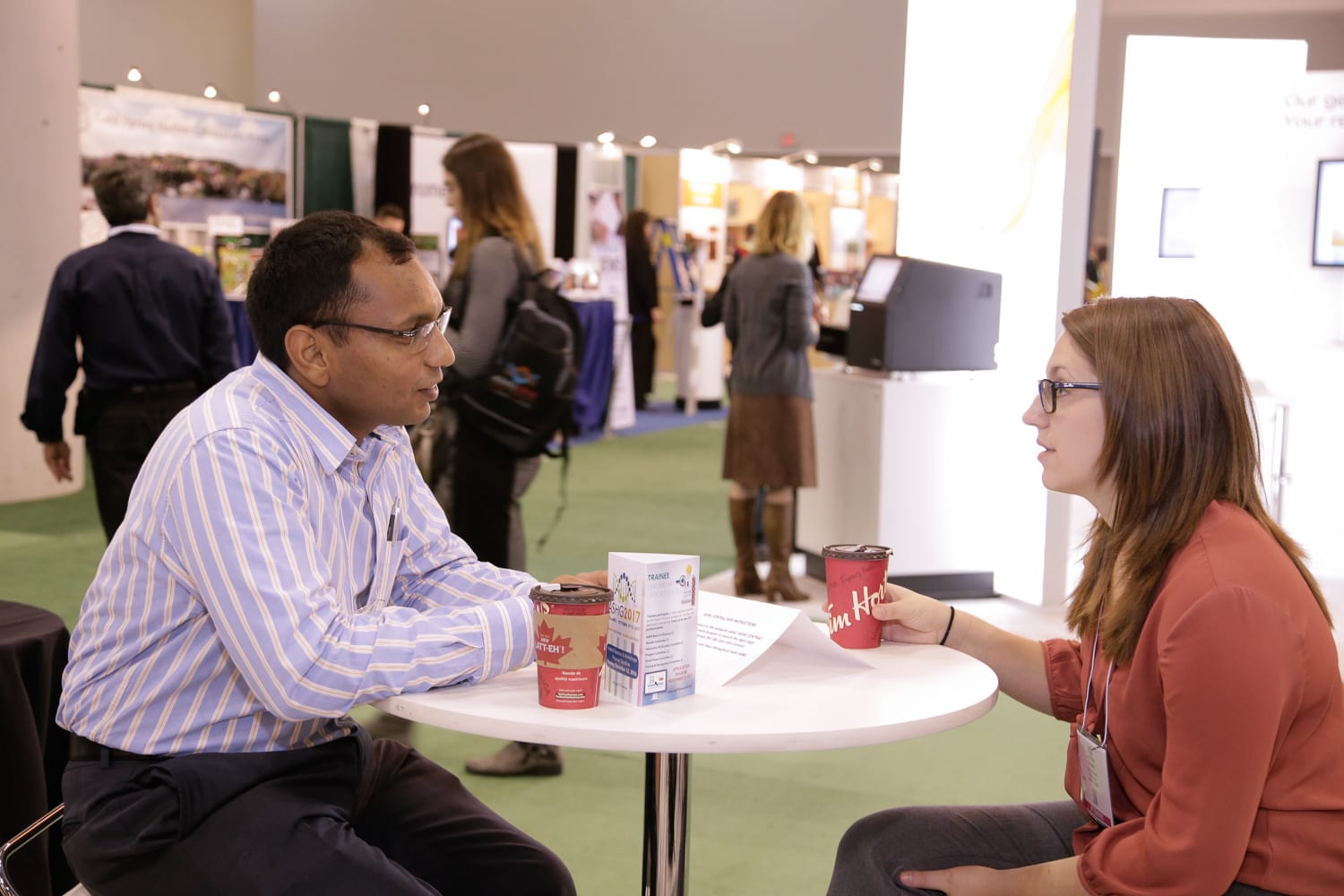Posted by: Kanika Pulliam, PhD, ASHG Educational Programs Manager
This year, ASHG and the Federation of American Societies for Experimental Biology (FASEB) are offering a newly structured travel award for underrepresented* trainees who are full-time undergraduate, graduate, medical students, and postdoctoral/clinical fellows who attend ASHG 2017.
Applications are due August 31, 2017 at 5:00 pm U.S. Eastern Time. Email questions and completed applications to marcssm@faseb.org.
What makes this travel award unique is its goal is to provide engaged and structured mentoring for trainees attending the meeting. This is fostered by assigning each awardee a peer mentor based on common interest.

The mentorship process starts before ASHG 2017 and continues during and after the meeting. Peer mentors will begin communicating with awardees before the meeting through a series of activities, including helping awardees choose events and sessions to attend and establishing their career interests to customize the meeting experience.
During the meeting, awardees will practice their presentations with their peer mentors and receive feedback. Peer mentors will also help awardees identify Exhibit Hall booths to visit based on their career interests, attend a social event together to practice networking, view poster and platform presentations to learn how to ask questions, and critique presentations. After the meeting, peer mentors will follow up with awardees by continuing to provide professional development support.
Peer mentors are selected based on their experience attending the meeting and their proximity in career development to the trainee awardee, which makes the relationship more relaxed. We have selected a diverse group of mentors spanning academia, industry, medicine, science education, and non-profits.
Awardees are required to attend specific trainee events and visit the Career Center to advance their networking skills and professional development. Here are the required events:
Wednesday, October 18
- Diversity Breakfast, 7:15-8:45am
Choose 1 of the following concurrent sessions:
- Trainee Professional Development Program (Academic Career Panel), 12:30-1:45pm, OR
- Trainee-Mentor Luncheon (1), 12:30-1:45pm
Thursday, October 19
Choose 1 of the following concurrent sessions:
- Trainee Professional Development Program (Passion Won’t Pay the Bills: Planning for a Successful Scientific Career), 12:30-1:45pm, OR
- Trainee-Mentor Luncheon (2), 12:30-1:45pm
Friday, October 20
Choose 1 of the following concurrent sessions
- Trainee Professional Development Program (Industry Career Panel), 1-2:15pm, OR
- Mock NIH Study Section Workshop, 1-2:15pm
The travel award provides up to $1,850 in reimbursable funds for registration and travel. Applicants are required to submit and present (poster/oral) at ASHG 2017. Eligible applicants must be United States citizens or permanent residents with legal status. Trainees can be from minority institutions and historically black colleges and universities (HBCUs) or underrepresented trainees from majority institutions. Preference for the award is given to ASHG members.
* For the purpose of meeting the goals and objectives specified by the FASEB Diversity Resources Program, individuals from groups underrepresented in the biomedical, clinical, and behavioral sciences include:
- Individuals from racial and ethnic groups shown to be underrepresented in biomedical research, including Blacks or African Americans, Hispanics or Latinos, American Indians (who maintain tribal affiliation or community attachment) or Alaska Natives, Native Hawaiians, and other U.S. Pacific Islanders (Guam, American Samoa);
- Individuals with disabilities, defined as those with a physical or mental impairment that substantially limits one or more major life activities; and
- Individuals from disadvantaged backgrounds [usually undergraduate students], defined as those from a family with an annual income below established low-income thresholds and those who come from an educational environment that has inhibited the individual from obtaining the knowledge, skills, and abilities necessary to develop and participate in a research career.
Kanika Pulliam, PhD, is ASHG’s Educational Programs Manager. Learn more about ASHG’s programs for trainees, including programs at ASHG 2017.
